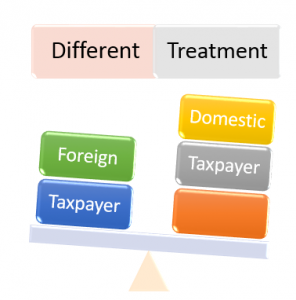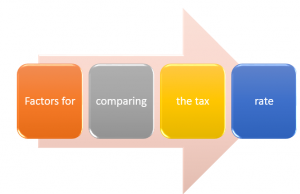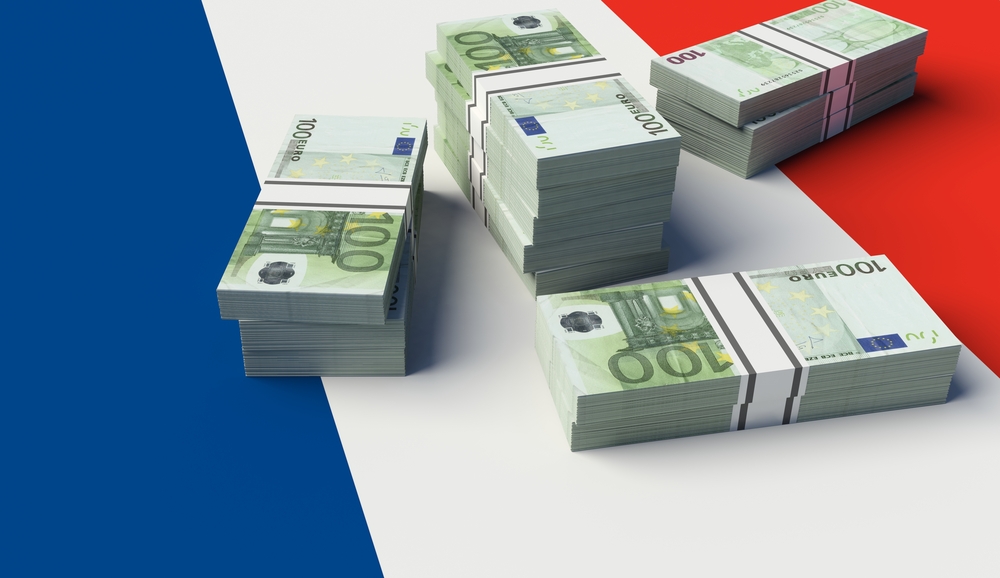
Refund of Dutch dividend withholding taxes: Millions question turns into a millions dollar ruling
Refund of Dutch dividend withholding taxes: Millions question turns into a millions dollar ruling
Refund of Dutch dividend withholding taxes: Millions question turns into a millions dollar ruling
Tue 15 Mar 2016
Today’s blog is from Dick van Sprundel, Assistant Professor International and European Tax Law at the Erasmus University Rotterdam plus International Tax Partner Mazars Netherlands. On 4 March 2016, the Dutch Supreme Court delivered its final decisions in X, Miljoen and Société Générale (Joined Cases C-10/14, C-14/14 and C-17/14). This blog article provides a unique insights into the Miljoen Case.
One of the three recent relevant cases on which the Dutch Supreme Court delivered a ruling on 4 March 2016 was brought forth by a Dutch individual who was a resident of Belgium: Mr. Million. The tax payer last name in Dutch (Miljoen) ironically translates literally to million in English. For a lot of people, Mr. Million may well become the superhero his name suggests him to be.
 Mr. Million felt treated unequally compared to Dutch tax residents because of the Dutch tax treatment on dividends. Rightly so, ruled the European Court of Justice (ECJ) followed by the Dutch Supreme Court. This ruling will probably prove very costly for the Dutch Ministry of Finance as more people will now come knocking for a refund of Dutch dividend withholding tax. As a rule of thumb, foreign investors holding less than 5% of the shares in a Dutch share company could benefit from Millions ruling. Maybe you are entitled to a refund too, seize this opportunity!
Mr. Million felt treated unequally compared to Dutch tax residents because of the Dutch tax treatment on dividends. Rightly so, ruled the European Court of Justice (ECJ) followed by the Dutch Supreme Court. This ruling will probably prove very costly for the Dutch Ministry of Finance as more people will now come knocking for a refund of Dutch dividend withholding tax. As a rule of thumb, foreign investors holding less than 5% of the shares in a Dutch share company could benefit from Millions ruling. Maybe you are entitled to a refund too, seize this opportunity!
Relevance
Pursuant to the Dutch Dividend Withholding Tax Act 1965 (“DWHTA”) (in Dutch: “Wet op de dividendbelasting 1965”), any distributions made by a Dutch share company like a BV (limited liability company) or NV (public company) to its shareholder are in principle subject to Dutch dividend withholding tax at a statutory rate of 15%, to be withheld by the Dutch share company. However, pursuant to the DWHTA, no dividend withholding tax has to be withheld, as the shareholders of the Dutch BVs hold an interest that would qualify for the application of the Dutch participation exemption, if they were located in the Netherlands. For the application of the Dutch participation exemption, a minimal interest of 5% needs to be held.
Notwithstanding that the Netherlands should not levy withholding tax pursuant to the Dutch national law, also international arrangements (i.e. tax treaties concluded by and between the Netherlands and the state of which the shareholder is a resident and/or the EU Parent-Subsidiary Directive (“PSD”) would result in a reduced dividend withholding tax on dividend distributions from the Dutch entities to their shareholders.
 In case of share interest of less than 5%, there is a different treatment between domestic taxpayers and foreign taxpayers: for domestic taxpayers the Dutch withholding tax on dividends regularly may be credited or result in a full refund, whilst for foreign taxpayers, the Dutch dividend withholding tax remains a tax burden. This unequal treatment is and will be a topic for debate between the Dutch tax authorities and taxpayers. The ruling for Million amongst others described the most recent debate.
In case of share interest of less than 5%, there is a different treatment between domestic taxpayers and foreign taxpayers: for domestic taxpayers the Dutch withholding tax on dividends regularly may be credited or result in a full refund, whilst for foreign taxpayers, the Dutch dividend withholding tax remains a tax burden. This unequal treatment is and will be a topic for debate between the Dutch tax authorities and taxpayers. The ruling for Million amongst others described the most recent debate.
Domestic vs. Foreign taxpayers
For domestic taxpayers, the Dutch dividend withholding tax is an advance levy; it precedes the annual (corporate) income tax. Therefore, domestic taxpayers can sometimes apply for a refund / credit in case less (corporate) income tax is due than was withheld. For foreign tax payers this isn’t – or more precisely, wasn’t – the case. For them the withholding tax generally was considered a final levy, which in most cases didn’t lead to a (full) refund of the taxes withheld by the Netherlands. In other words, the foreign shareholder that is comparable to the domestic shareholder was not treated equally. This means that in some cases foreign taxpayers are being disadvantaged compared to domestic tax payers.
The ECJ ruled in its ruling of 17 September 2015 in the joined cases X, Miljoen (Million) and Société Générale that this constitutes a breach of the free movement of capital to the extent that the tax borne by foreign shareholders in the Netherlands is more burdensome than the personal or corporate income tax which is borne by their Dutch resident counterparts. In three recent cases, the Dutch Supreme Court ruled in accordance with the ECJs preliminary ruling. We reiterate that these rulings relate to share interests in Dutch companies of less than 5%. In its preliminary ruling, the ECJ stated that the withholding tax is an unjustifiable breach of the freedom of capital, if the effective total tax rate on dividends is higher for foreign taxpayers than for their domestic counterparts. But how can you calculate and compare the effective total tax rate?
Factors for comparing the tax rate
 When calculating and comparing the effective total tax rate there are several factors that have to be taken into account. These factors were defined by the ECJ in its ruling of 17 September 2015 and applied by the Dutch Supreme court in recent cases:
When calculating and comparing the effective total tax rate there are several factors that have to be taken into account. These factors were defined by the ECJ in its ruling of 17 September 2015 and applied by the Dutch Supreme court in recent cases:
In the case of natural persons:
- one has to take all Dutch shares into account, not just the ones that led to dividend payments;
- one can take the full Dutch tax-free sum (amount over which no income tax (Box 3) is due) into account. This is one of the points on which the Dutch Supreme Court differs from the Advocate General’s proposed method. The AG proposed a proportional allocation of the tax-free capital sum on the ratio of Dutch shares to the total capital held;
- one has to use a calendar year as reference period.
In the case of entities as the shareholder in question one has to take all the costs that are directly related to the collection of dividends as such into account for determining the comparative tax burden. Financing costs related to buying and holding shares are, for example, not included in these costs.
If and when – based on the previous factors – the effective total tax rate on dividends is higher for foreign taxpayers than it would have been for domestic taxpayers in a similar situation, than the Netherlands is obligated to give a tax refund. In order to benefit from such a refund or credit, a request has to be filed in writing and received in time by the Dutch Tax Authorities. What “in time” means currently will be debated as well. The Dutch secretary of state of the Ministry of Finance argues that the term timely – the period within which the request should be made – equals to three years. We are of the view that this term is five years from the end of the year from which the withholding tax in question stems. We have pretty good arguments and valid reasons to convince the Dutch secretary of state (if and when requested).
 Uncertainties in the ruling
Uncertainties in the ruling
A- Pre-acquisition dividends
Something that might stir up a discussion is the matter of pre-acquisition dividends. For domestic taxpayers these dividends aren’t part of their tax base as they aren’t considered a benefit related to the holding of shares but rather a partial refund of the investment made when buying the shares.
The Dutch Supreme Court explicitly asked the ECJ for its take on these dividends in the request for a preliminary ruling. The ECJ subsequently ruled, as noted above, that only costs directly related to the collection of dividends can be taken into account, implicitly ruling out pre-acquisition dividends. The Dutch Advocate General – however – came to a different conclusion. He concluded, as recorded, that pre-acquisition dividends aren’t part of the tax base under the Dutch fiscal regime and thus it wouldn’t even come to a cost allocation discussion on the matter. Since the tax rate on pre-acquisition dividends does not result in a corporate income tax burden for domestic taxpayers, it should be the same for their foreign counterparts according to AG Wattel. This should have been resulted in a full refund of the Dutch withholding tax on dividend payments. However, the Dutch Supreme Court doesn’t comment on Wattel’s line of thought and thus implicitly disagrees with it in our opinion.
B- Debts
Another matter that was left ambiguous is whether or not debts can be included when calculating and comparing the tax rates in relation to the withholding tax. Under the Dutch fiscal regime debts can generally be set off against assets when calculating ones income tax base. For instance, if and when one has €1 million worth of assets but also €1 million worth of debt then no income tax is due. Subsequently, a full refund of Dutch dividend withholding tax should take place. The Dutch Supreme Court didn’t comment on this matter as there were no debts to be considered in the three cases at hand. A missed opportunity, if you ask us and we look forward to receive more guidance from the legislator soon. Note that we are of the view that the debts should be reduced from a tax payer assets as this would be the case for a Dutch domestic tax payers as well. Comparable situations should be treated equally and incomparable situations in the ratio as they are not equal, as Aristotle already shared ages ago.
How can Mazars help you?
Further to this ruling, the Dutch Tax Authorities will in more than one case have to refund the Dutch dividend withholding tax withheld, plus interest. The amounts will differ per person as every case is unique. For foreign individuals and foreign entities that hold less than 5% of the shares in a Dutch dividend distributing entity, the effective total tax burden needs to be compared. If and when foreign recipients – among others foreign investment funds – actually bear a comparatively heavier tax burden in the Netherlands compared to a domestic recipient, a refund should be possible. If you or your company holds an interest in a Dutch share company of less then 5%, you may – in particular in the case of individuals – be entitled to a refund. We as Mazars can help you with the calculation and the comparison of the effective total tax rate. Obviously, we can and are pleased to assist you with the refund of the Dutch dividend withholding tax that has been withheld unnecessary and unrightfully pursuant the ECJ and Dutch court rulings.
Unfortunately, Mr. Millions request was denied because the withholding tax on his dividends was lower than the amount of income tax he would have to pay, if he had been a Dutch resident. Nevertheless, his tax adviser and others should be pleased that Mr. Million (and companions) certainly opened the door for others. His one million dollar question will result in a loss of millions for the Dutch government. Pretty impressive for a man who didn’t even get a refund himself in the end…
For more information
For more information and deeper discussion of the Miljoen Case please get in contact with your local Mazars experts or Dick van Sprundel on Dick.vanSprundel@mazars.nl .
Related articles and links:
- Dutch Supreme Court 4 March 2016, no. 12/04717bis., http://deeplink.rechtspraak.nl/uitspraak?id=ECLI:NL:HR:2016:361
- Dutch Supreme Court 4 March 2016, no. 12/03235bis, http://deeplink.rechtspraak.nl/uitspraak?id=ECLI:NL:HR:2016:363.
- Dutch Supreme Court 4 March 2016, , no. 12/02502bis, http://deeplink.rechtspraak.nl/uitspraak?id=ECLI:NL:HR:2016:362
- Please also see Dick van Sprundels interview for Taxlive on 8 March 2016 (in Dutch), “Belastingdienst wacht miljoenenclaim na dividendenarresten”, http://taxlive.nl/-/belastingdienst-wacht-miljoenenclaim-na-dividendarresten.
- Please also see Dick van Sprundels interview for Taxlive on 25 September 2015 (in Dutch), “Dividendbelasting brengt fiscale wereld in beweging”, http://taxlive.nl/-/dividendarrest-brengt-fiscale-wereld-in-beweging.
- Please see D.E. van Sprundel, Taxvisions 11 March 2016 (in Dutch), “Eindarresten Hoge Raad over teruggaaf dividendbelasting”, www.taxvisions.nl.



Comments